In the Interuniversity PhD Program in Science Education (Didactics of Experimental Sciences), we consider two situations:
-
If the number of students who have pre-registered at one of the participating universities is equal to or less than the number of places offered by it, all candidates who meet the entry requirements may be admitted, (with or without supplementary training/bridging courses).
-
If the number of students who have pre-registered at one of the participating universities is greater than the number of places offered by it, the scoring criteria (baremo) outlined in Table 6 of the program specifications (memoria) must be applied to select the admitted candidates.
In no case shall the number of students proposed for admission to the program exceed the number of available places specified in the program specifications.
Admitted doctoral candidates will enroll annually at one of the participating universities, registering for "doctoral academic supervision" (tutela académica). Enrollment will be processed by the designated administrative office, in accordance with the requirements established in the supplementary regulations and the admission and enrollment instructions approved by the corresponding University for each academic year.
Furthermore, it is important to highlight the specific circumstances of two cases which, although they do not directly impact the access routes or admission criteria, require specialized treatment:
a. Part-time students. The doctoral regulations of the participating Universities provide for studies in this modality. These students will be governed by the same parameters as other students regarding admission criteria and mode of entry, although their specific circumstances will be taken into account. As previously mentioned, the duration of their doctoral studies may be extended in accordance with the regulations of each participating university.
b. Students with special educational needs derived from disability. The selection and admission systems and procedures will include the pertinent actions to promote, to the greatest extent possible, equal access conditions and integration in all aspects. To this end, support will be provided by the Advisory Services (or Disability Support Services) of the participating universities, which will assess the need for possible curricular adaptations, alternative pathways, or studies.








